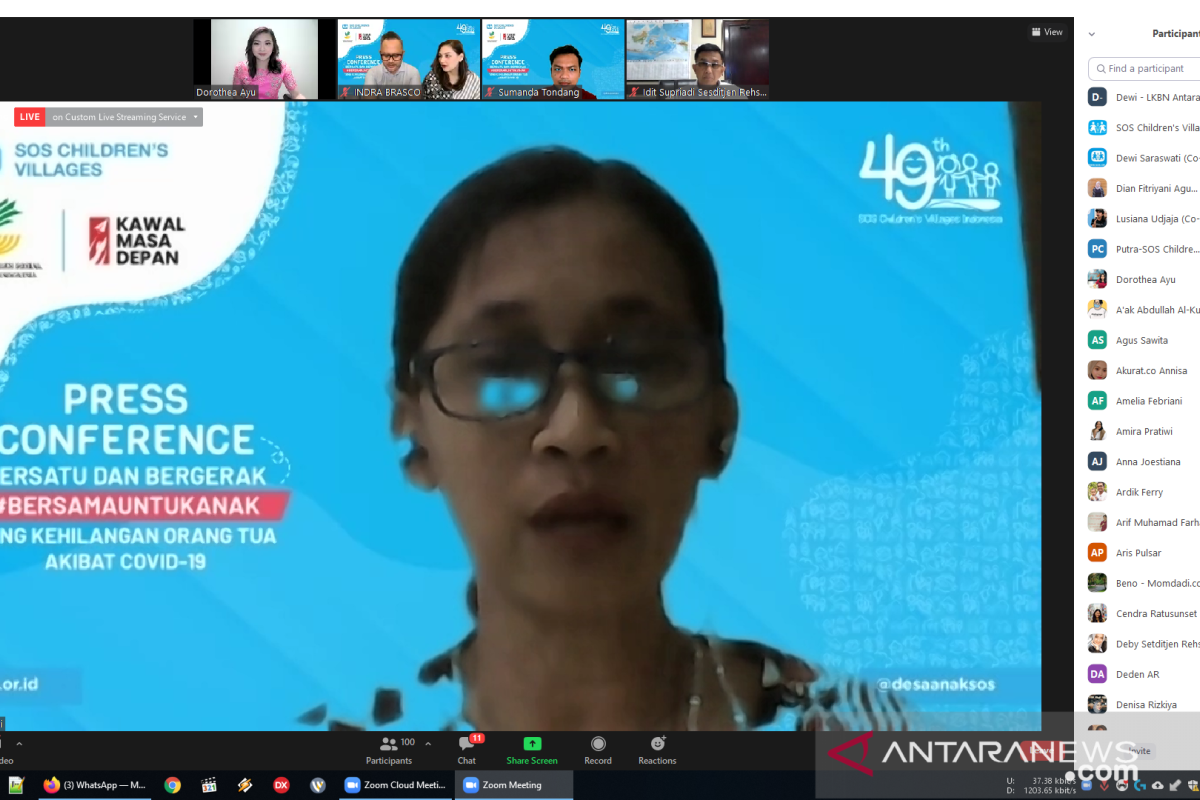"Kids are often dazed/dumbfounded, their eyes are blank. There are kids who go out (of their homes) every day. They say there are leaving to catch fish, and they only return in the evening," Saraswati said at a webinar entitled 'United and Moving #BersamaUntukAnak (Together For Children) Who Lost Parents Due to COVID-19' here on Thursday.
She also pointed out some other changes in their attitude, including how they often bite their nails and look down. Some do not leave the house, she said. "Some often sleep. They sleep way too much," she said.
She said her agency even found a child who, when he saw a woman whose face resembled his mother's, immediately hugged the woman tightly.
Related news: Govt devising steps for helping children orphaned due to COVID
These behavioral changes came to light after a research conducted by SOS Children's Villages Indonesia in Semarang city, Central Java, and Yogyakarta, Saraswati informed.
The researchers did not find the children displaying any form of violence, she informed. In addition, there was no difference in the pattern of parenting between caregivers and orphans, she said.
These children are vulnerable to violence if they do not receive psychosocial assistance, she said.
"We see that it is quite risky for kids who can not receive psychosocial assistance. When they have unexpected behavior and the caregivers are not mentally and economically ready, this is very risky for children and they can experience physical and emotional violence," she added.
Related news: Child protection agency urges regional governments to protect orphans
Translator: Anita P D, Mecca Yumna
Editor: Rahmad Nasution
Copyright © ANTARA 2021












